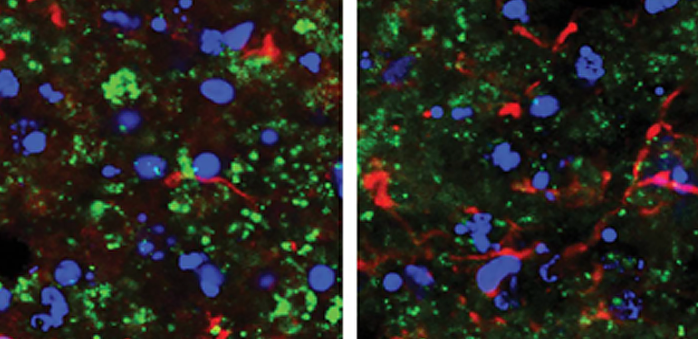People with a gene variant called APOE4 have a higher risk of developing late-onset Alzheimer’s disease: APOE4 is three times more common among Alzheimer’s patients than it is among the general population. However, little is known about why this version of the APOE gene, which is normally involved in metabolism and transport of fatty molecules such as cholesterol, confers higher risk for Alzheimer’s.
To shed light on this question, MIT neuroscientists have performed a comprehensive study of APOE4 and the more common form of the gene, APOE3. Studying brain cells and organoids derived from a type of induced human stem cells, the researchers found that APOE4 promotes the accumulation of the beta amyloid proteins that cause the characteristic plaques seen in the brains of Alzheimer’s patients.
And watch below.
